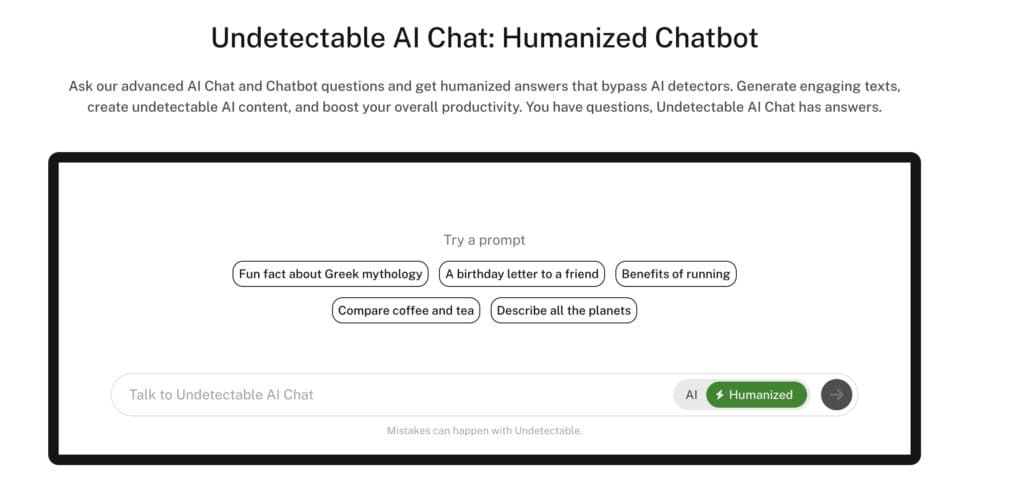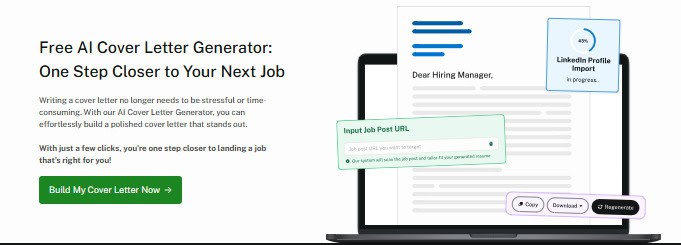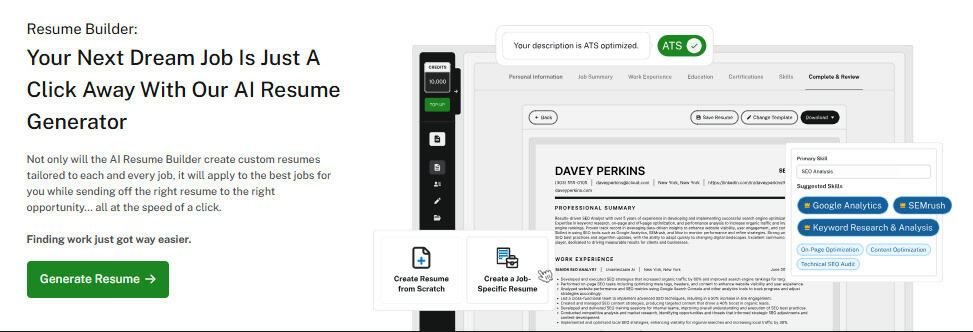Μόλις μπείτε σε μια συνέντευξη, πρέπει να είστε προετοιμασμένοι για ό,τι θα ακολουθήσει και για τις ερωτήσεις που θα σας κάνει ο συνεντευξιαστής.
Όταν σου θέτουν το ερώτημα γιατί αφήνεις την τρέχουσα δουλειά σου, αμέσως νιώθεις άβολα.
Κάθεσαι απέναντι από έναν συνεντευξιαστή που σε αξιολογεί και διαβάζει ανάμεσα στις γραμμές ό,τι λες.
Εκείνη τη στιγμή, αυτό που θα πείτε στη συνέχεια έχει μεγαλύτερη σημασία από ό,τι νομίζετε. Η απάντησή σας διαμορφώνει την εντύπωση που έχουν για εσάς. Τους λέει ποιος είστε, τι εκτιμάτε και αν είστε το άτομο που θέλουν στην ομάδα τους.
Μην ανησυχείτε, αυτός ο οδηγός θα σας προσφέρει τις καλύτερες λύσεις για κάθε περίπτωση και θα σας δείξει πώς να απαντήσετε στο ερώτημα γιατί αφήνετε τη δουλειά σας.
Βασικά συμπεράσματα
- Πρέπει να ακούγεστε επαγγελματίας όταν απαντάτε στο ερώτημα γιατί αφήνετε τη δουλειά σας και να παρουσιάζετε τις ενέργειές σας ως μια φυσική εξέλιξη για εσάς.
- Απαντήστε στην ερώτηση παρουσιάζοντας την εξέλιξη της καριέρας σας και τους στόχους σας.
- Η ερώτηση δείχνει στους συνεντευξιαζόμενους πώς βλέπετε τις προηγούμενες θέσεις εργασίας σας και τη νοοτροπία σας όταν ξεκινάτε μια νέα.
Γιατί οι υπεύθυνοι συνεντεύξεων κάνουν αυτή την ερώτηση

Οι υπεύθυνοι συνεντεύξεων ρωτούν “Γιατί αφήνετε την τρέχουσα δουλειά σας;” όχι για να σας αποσπάσουν την προσοχή.
Μάλλον, κάνουν αυτή την ερώτηση για να μάθουν ποια είναι η επαγγελματικός στόχος είναι και τι σκοπεύετε να κάνετε στη συνέχεια, αν εργαστείτε υπό τις συνθήκες αυτές.
Ως αποτέλεσμα, δεν χρειάζεται να ανησυχείτε όταν σας τεθεί αυτή η ερώτηση, καθώς οι υπεύθυνοι προσλήψεων γνωρίζουν ότι η αλλαγή εργασίας είναι ένα φυσιολογικό μέρος της ζωής και απαραίτητο για την εξέλιξη.


Μην ανησυχείτε ποτέ ξανά για την τεχνητή νοημοσύνη που ανιχνεύει τα κείμενά σας. Undetectable AI Μπορεί να σας βοηθήσει:
- Κάντε το γραπτό σας με υποστήριξη AI να εμφανιστεί ανθρωποειδής.
- Παράκαμψη όλα τα κύρια εργαλεία ανίχνευσης AI με ένα μόνο κλικ.
- Χρήση AI με ασφάλεια και με αυτοπεποίθηση στο σχολείο και στην εργασία.
Τι αποκαλύπτει αυτή η ερώτηση για εσάς
Ο τρόπος με τον οποίο απαντάτε στο ερώτημα γιατί αφήνετε την τρέχουσα θέση εργασίας σας, αποκαλύπτει κατά λάθος στον υπεύθυνο προσλήψεων τα εξής για εσάς:
- Ο επαγγελματισμός σας: Αυτό το μέρος είναι σημαντικό για αυτούς, καθώς παρουσιάζει τον τρόπο με τον οποίο συζητάτε για την προηγούμενη δουλειά σας και τις συνθήκες που την περιβάλλουν. Συνεπώς, το να συζητάτε για την προηγούμενη δουλειά σας με αρνητικό ή θετικό τρόπο δείχνει τον επαγγελματισμό σας.
- Οι επαγγελματικοί σας στόχοι: Καθώς απαντάτε στην ερώτηση, οι λόγοι που αναφέρετε πρέπει να είναι προοδευτικοί και να δείχνουν ότι προσπαθείτε να εξελιχθείτε σκόπιμα από επαγγελματική άποψη.
- Οι αξίες σας: Οι αξίες σας αντανακλούν τους λόγους για τους οποίους αποχωρήσατε και θα θέλατε να συνεργαστείτε μαζί τους. Αυτοί μπορεί να είναι η ισορροπία μεταξύ επαγγελματικής και προσωπικής ζωής ή πιο απαιτητικές θέσεις που ανταποκρίνονται στις δεξιότητές σας.
- Η μακροζωία σας: Η απάντησή σας αποκαλύπτει επίσης ότι ό,τι σας έκανε να αφήσετε την προηγούμενη δουλειά σας θα μπορούσε να ικανοποιηθεί από τη νέα οργάνωση.
Ίσως ακόμα δεν έχετε τη σωστή απάντηση για την επερχόμενη συνέντευξη.
Τότε δοκιμάστε το Συνομιλία AI να προσομοιώσετε μια συνέντευξη γύρω από αυτό το θέμα και να προετοιμαστείτε από τώρα.
Αυτό το εργαλείο θα σας βοηθήσει να εξασκηθείτε σε πραγματικές συνεντεύξεις και να βελτιώσετε τον τρόπο με τον οποίο απαντάτε στο ερώτημα γιατί αφήνετε την τρέχουσα θέση εργασίας σας.

Αφού εξασκηθείτε στις απαντήσεις σας, χρησιμοποιήστε το Ελεγκτής AI να τα ελέγξετε για αυθεντικότητα και ροή.
Σας βοηθά να εντοπίσετε τυχόν φράσεις που μπορεί να ακούγονται υπερβολικά τεχνητές ή αφύσικες, εξασφαλίζοντας ότι οι απαντήσεις σας θα ακούγονται αυθεντικές και φυσικές — όπως θα ήταν σε μια πραγματική συνέντευξη.
Πώς να δομήσετε την απάντησή σας
Υπάρχει μια συγκεκριμένη μορφή για την απάντηση σε αυτή την ερώτηση, την οποία πρέπει να ακολουθήσετε κατά την προετοιμασία της απάντησής σας, ώστε να βεβαιωθείτε ότι μεταφέρετε όλα τα σημεία που θέλετε και αποφεύγετε τυχόν πιθανές προειδοποιητικές ενδείξεις για τους συνεντευξιαζόμενους.
Αυτό θα είναι εύκολο για εσάς να καταλάβετε, χάρη στο πλαίσιο που σας παρέχουμε εδώ.
- Ξεκινήστε θετικά: Πρέπει πάντα να ξεκινάτε με θετικό τόνο. Αυτό μπορεί να είναι να μιλήσετε για το τι εκτιμούσατε στην προηγούμενη δουλειά σας ή για το τι έχετε μάθει στην τρέχουσα δουλειά σας. Σε αυτόν τον τομέα δεν πρέπει να είστε αρνητικοί, καθώς η δυσαρέσκεια μπορεί να επηρεάσει την εντύπωση που προσπαθείτε να δημιουργήσετε.
- Αναφέρετε τον λόγο σας: Σας συμβουλεύουμε να είστε ειλικρινείς σχετικά με τους λόγους για τους οποίους αφήνετε την τρέχουσα θέση εργασίας σας και να αποφύγετε τις περιττές λεπτομέρειες. Αν μιλήσετε υπερβολικά, μπορεί να δώσετε πάρα πολλές λεπτομέρειες και να φανείτε αμυντικοί.
- Δηλώστε μια νέα ευκαιρία: Κάντε τους υπεύθυνους της συνέντευξης να δουν την αποχώρησή σας ως ένα βήμα προς νέες ευκαιρίες για εσάς, τις οποίες θα μπορούσε να σας προσφέρει η εταιρεία τους.
- Διατηρήστε τον επαγγελματισμό: Αυτή η ερώτηση δεν απαιτεί μακροσκελή απάντηση. Το ιδανικό είναι να απαντήσετε σε 30 με 60 δευτερόλεπτα. Μην συνεχίζετε να παραπονιέστε για τα προβλήματα που είχατε στην προηγούμενη δουλειά σας.
- Τέλος Ελπίδα: Μπορείτε να ολοκληρώσετε την απάντησή σας δείχνοντας πραγματικό ενδιαφέρον για τη νέα θέση εργασίας και για το τι θα σήμαινε αυτή για την καριέρα σας.
+20 καλοί λόγοι για να αφήσετε μια δουλειά
Όλοι έχουμε τον έναν ή τον άλλο λόγο για να αφήσουμε μια δουλειά, αλλά ίσως χρειαστείτε έναν πιο συναρπαστικός.
Όποια και αν είναι η περίπτωση, μπορείτε να χρησιμοποιήσετε έναν από τους παρακάτω εύλογους λόγους.
- Επαγγελματική εξέλιξη
- Ανάπτυξη δεξιοτήτων ή αλλαγή καριέρας
- Οργανωτική αναδιάρθρωση
- Ισορροπία μεταξύ επαγγελματικής και προσωπικής ζωής
- Μετεγκατάσταση
- Σταθερότητα της εταιρείας
- Ευθυγράμμιση αξιών
- Εξέλιξη ρόλου
- Περιορισμοί στην επαγγελματική ανάπτυξη
- Αποζημίωση και παροχές
- Πολιτισμική συμβατότητα
- Αυξημένη ευθύνη
- Αλλαγή εργασιακής κατάστασης
- Στρατηγική αναντιστοιχία
- Αναντιστοιχία επαγγελματικών στόχων
- Κλείσιμο ή συγχώνευση επιχειρήσεων
- Έμφαση στην τεχνολογία και την καινοτομία
- Προτίμηση συνεργασίας ομάδας
- Σαφήνεια στην εξέλιξη της σταδιοδρομίας
- Ευελιξία στην οργάνωση της εργασίας
- Προσωπικές ή οικογενειακές υποχρεώσεις
- Συνεχής εκπαίδευση
- Παρακμή ή αστάθεια του κλάδου
- Μείωση των μετακινήσεων
- Προτίμηση ως προς το μέγεθος της εταιρείας (μεγαλύτερη/μικρότερη οργάνωση)
- Αλλαγές στην ηγεσία ή τη διοίκηση
- Ολοκλήρωση έργου ή λήξη σύμβασης
- Ενδιαφέρον για γεωγραφική επέκταση της αγοράς
- Ανησυχίες για επαγγελματική εξουθένωση ή υπερβολική εργασία
- Εξειδίκευση έναντι γενίκευσης
Δείγματα απαντήσεων για διαφορετικές καταστάσεις
Από τους λόγους που μπορείτε να προσαρμόσετε για το γιατί αφήσατε τη δουλειά σας, χωρίς περαιτέρω καθυστέρηση, αυτοί είναι οι λόγοι για τους οποίους αφήνετε την τρέχουσα δουλειά σας - δείγματα απαντήσεων.
Αναπτύσσοντας ηγετικές ικανότητες
“Εδώ και πέντε χρόνια εργάζομαι σε θέσεις όπου πρέπει να ακολουθώ τις οδηγίες άλλων, και αυτή η εμπειρία μου έχει διδάξει πολλά για τη δουλειά και μου έχει δώσει μοναδικές γνώσεις που πιστεύω ότι θα μου φανούν χρήσιμες σε μια ηγετική θέση.
Αυτή τη στιγμή, αυτή η προσφορά εργασίας μου δίνει την ευκαιρία να αναλάβω έναν ηγετικό ρόλο και να διαχειριστώ πολλαπλά έργα, ώστε να ανταποκριθώ και να ξεπεράσω τις προσδοκίες. Θεωρώ ότι είναι το φυσικό επόμενο βήμα σε σχέση με αυτό για το οποίο έχω εργαστεί μέχρι τώρα.”
Αναζήτηση επιλογών εξ αποστάσεως εργασίας
“Η εργασία σε γραφειακούς χώρους ήταν ενδιαφέρουσα. Ωστόσο, τώρα αποτελεί περισσότερο εμπόδιο για την εργασία και την παραγωγικότητά μου. Εξετάζοντας αυτό το θέμα, διαπίστωσα ότι όταν εργάζομαι από το σπίτι, είμαι πιο συγκεντρωμένος και πραγματικά παραγωγικός με έναν τρόπο που δεν ήμουν εδώ και καιρό.
Επιπλέον, ξοδεύω 2 ώρες την ημέρα για τις μετακινήσεις μου. Αυτός ο χρόνος θα μπορούσε να αξιοποιηθεί καλύτερα και να ανακατευθυνθεί σε πιο δημιουργικές εργασίες που θα ενίσχυαν την παραγωγικότητα της δουλειάς μου. Ψάχνω πραγματικά για μια θέση που να απαιτεί από μένα να εργάζεστε εξ αποστάσεως και αξιολογεί τη δουλειά μου με βάση τα αποτελέσματα που παρουσιάζει ο ρόλος σας.”
Αστάθεια της εταιρείας
“Η τρέχουσα εταιρεία μου έχει υποστεί πολλές αλλαγές κατά το τελευταίο έτος, όπως νέα ηγεσία και αλλαγές στη στρατηγική. Παρόλο που έχω προσαρμοστεί καλά, αναζητώ ένα πιο σταθερό εργασιακό περιβάλλον όπου θα μπορώ να επικεντρωθώ στην καριέρα μου και σε μακροπρόθεσμα έργα. Η σταθερή ανάπτυξη και η σαφής όραση της εταιρείας σας προσφέρουν αυτή τη σταθερότητα.”
Μετεγκατάσταση
“Πρόσφατα μετακόμισα από το Σικάγο στην Καλιφόρνια για νέες και καλύτερες επαγγελματικές ευκαιρίες, καθώς ένιωθα ότι οι δεξιότητές μου δεν αξιοποιούνταν επαρκώς εκεί όπου βρισκόμουν. Ωστόσο, μετά από έρευνα που έκανα για την εταιρεία σας, βλέπω ότι αυτή είναι η κατάλληλη θέση για να αξιοποιήσω τις δεξιότητές μου σε πιο απαιτητικούς ρόλους και επίσης να αποκτήσω βασική εμπειρία σε αυτό το νέο περιβάλλον στο οποίο βρίσκομαι.”
Οι δείγμα απαντήσεις είναι μόνο μερικές από τις δεκάδες που μπορείτε να χρησιμοποιήσετε. Μπορεί να βρεθείτε αντιμέτωποι με μοναδικές καταστάσεις όπου κι αν βρίσκεστε. Όποια κι αν είναι η περίπτωση, χρησιμοποιήστε τις παραπάνω απαντήσεις ως μελλοντική αναφορά όταν διατυπώνετε την απάντησή σας.
Είναι καλύτερο να μην χρησιμοποιείτε μόνο το Συνομιλία AI αλλά και άλλα χρήσιμα εργαλεία για την υποβολή αιτήσεων εργασίας. Αυτά τα εργαλεία μπορούν να σας βοηθήσουν στη διαδικασία υποβολής αιτήσεων εργασίας.
Για παράδειγμα, το Έξυπνη εφαρμογή εξορθολογίζει την αναζήτηση εργασίας σας.

Συμπληρώνει αυτόματα τις αιτήσεις, εξοικονομώντας σας ώρες επαναλαμβανόμενης εργασίας, ώστε να μπορείτε να υποβάλετε αίτηση για περισσότερες θέσεις εργασίας.
Αυτό ταιριάζει πολύ καλά με το Γεννήτρια συνοδευτικής επιστολής, που σας βοηθά να γράψετε επιστολές που πραγματικά σας αντιπροσωπεύουν και δείχνουν ακριβώς γιατί θα ήσασταν ιδανικοί για τη θέση.

Και αν χρειάζεστε ένα βιογραφικό που θα περάσει τα αυτοματοποιημένα συστήματα επιλογής των κορυφαίων οργανισμών, τότε θα πρέπει να χρησιμοποιήσετε το Δημιουργός βιογραφικού σημειώματος για την επιτάχυνση της διαδικασίας.
Μπορείτε να δημιουργήσετε αποτελεσματικά ένα καθαρό και φιλικό προς το ATS βιογραφικό σε λίγα δευτερόλεπτα. Με την πάροδο του χρόνου, θα παρατηρήσετε ότι η αίτησή σας δεν εξαφανίζεται στο κενό, αλλά παίρνεις περισσότερες συνεντεύξεις.

Συνολικά, με τα διάφορα εργαλεία που διαθέτουμε, μπορείτε να αποκτήσετε ένα στοχευμένο πακέτο αίτησης εργασίας που θα σας οδηγήσει στην επόμενη θέση εργασίας σας.
Τι να μην πείτε όταν σας ρωτήσουν “Γιατί αφήνετε τη δουλειά σας;”
Ο τρόπος με τον οποίο διατυπώνετε την απάντησή σας καθορίζει αν θα προχωρήσετε στη διαδικασία της συνέντευξης.
Εάν η απάντησή σας ακούγεται βιαστική ή απερίσκεπτη, η ομάδα πρόσληψης θα το αντιληφθεί.
Συγκεκριμένα, δεν πρέπει να λέτε τίποτα όπως:
- Μιλώντας αρνητικά για τη δουλειά σας: Μην μιλάτε αρνητικά για τον πρώην εργοδότη ή την πρώην εταιρεία σας κατά τη διάρκεια της συνέντευξης, καθώς δεν είναι το κατάλληλο μέρος για να εκφράσετε αρνητικά σχόλια για την εταιρεία. Οι υπεύθυνοι της συνέντευξης θα το θεωρήσουν αντιεπαγγελματικό και, ακόμη χειρότερα, θα αναρωτηθούν αν θα κάνετε το ίδιο και σε αυτούς κάποια μέρα.
- Παράπονα μόνο για το μισθό σας: Είναι λογικό να έχετε καλύτερες προσδοκίες όσον αφορά τον μισθό, αλλά μην ξεκινήσετε με μια απάντηση όπως “Δεν αμείβομαι αρκετά”. Πρέπει να το διατυπώσετε με επαγγελματικό τρόπο, έτσι ώστε να αναδείξετε την αγοραία αξία σας στο προσκήνιο της συζήτησης. Τελικά, το μήνυμα είναι το ίδιο, αλλά με καλύτερο τρόπο παρουσίασης.
- Ασαφής: Σε κάθε συνέντευξη που δίνετε, φροντίστε να μην είστε ασαφείς όταν η κατάσταση απαιτεί συγκεκριμένες απαντήσεις. Η ασαφής σας στάση μπορεί να εκληφθεί ως ένδειξη παραπλάνησης.
- Υπερβολική κοινοποίηση: Πηγαίνετε στη συνέντευξη για μια θέση εργασίας και όχι για να μιλήσετε για προσωπικά σας θέματα. Μπορείτε να αναφέρετε ότι αυτό σχετίζεται με την ισορροπία μεταξύ επαγγελματικής και προσωπικής ζωής όταν λαμβάνετε αποφάσεις σχετικά με την καριέρα σας και την επαγγελματική σας εξέλιξη. Η υπερβολική κοινοποίηση πληροφοριών σε αυτό το θέμα θέτει υπό αμφισβήτηση τα επαγγελματικά σας όρια.
Πώς να απαντήσετε αν είστε ακόμα απασχολούμενος
Το να είσαι απασχολημένος όταν αναζητάς νέα δουλειά είναι θετικό για σένα. Η απάντησή σου πρέπει να είναι ευγενική και επαγγελματική, αλλά εδώ είναι πώς να την διατυπώσεις σωστά.
- Έμφαση στην ανάπτυξη: Κοιτάξτε πέρα από αυτό που θα αφήσετε πίσω σας. Αντί να παραπονιέστε για την τρέχουσα εργασία σας, εστιάστε στα θετικά στοιχεία που προσδοκάτε από τη νέα σας εργασία.
- Εστίαση στην εξέλιξη της σταδιοδρομίας: Μιλήστε σύντομα για την τρέχουσα θέση σας και οδηγήστε τους φυσικά στο συμπέρασμα ότι αφήνετε την τρέχουσα δουλειά σας επειδή εμποδίζει την επαγγελματική σας εξέλιξη. Αυτό παρουσιάζει την εταιρεία τους ως την καλύτερη εναλλακτική λύση.
- Τονίστε την ευθυγράμμιση με τους μελλοντικούς στόχους: Μπορείτε επίσης να δώσετε μια απάντηση που να ενημερώνει τον συνεντευξιαστή ότι αναζητάτε νέα θέση εργασίας επειδή η εταιρεία του ταιριάζει απόλυτα με τους μελλοντικούς σας στόχους.
- Δείξτε ότι δεν είστε απελπισμένοι: Η απελπισία δεν βοηθά ποτέ την υπόθεσή σας σε μια συνέντευξη. Έτσι, αν απαντήσετε με απελπισία, θα σας θεωρήσουν ότι προσπαθείτε να ξεφύγετε από τη δουλειά σας αντί να επιδιώκετε επαγγελματική εξέλιξη.
Πώς να απαντήσετε αν απολυθήκατε
Το γεγονός ότι απολύθηκες δεν σημαίνει ότι δεν έχεις καμία πιθανότητα να περάσεις τη συνέντευξη. Πρέπει να το παρουσιάσεις με επαγγελματισμό όταν απαντάς. το ερώτημα.
- Να είστε ειλικρινείς αλλά στρατηγικοί: Αντί να προσπαθήσετε να κρύψετε το γεγονός ότι απολυθήκατε, να είστε στρατηγικοί και απλά ειλικρινείς. Θα υπάρχουν αποδείξεις για την αόριστη στάση σας όταν ελέγξουν τις συστάσεις σας. Μάλλον, αναφερθείτε σε αυτό εν συντομία, αποφεύγοντας την υπερβολική ανάλυση.
- Αναλάβετε την ευθύνη: Είτε απολύθηκες άδικα είτε τα πράγματα απλά πήγαν στραβά λόγω κακής τύχης, αναλάβε την ευθύνη για το ρόλο που έπαιξες σε αυτό. Ακόμα και αν ο ρόλος σου ήταν μικρός, αναγνώρισέ τον.
- Να είστε σύντομοι: Η στάση σας όταν απαντάτε δεν πρέπει να είναι αρνητική. Απλά περιγράψτε την κατάσταση με τρεις φράσεις το πολύ. Στη συνέχεια, προχωρήστε σε αυτά που μάθατε και πώς αυτά θα σας βοηθήσουν. νέος ρόλος.
- Αναδείξτε το ιστορικό σας: Εάν η απόλυσή σας ήταν ένα μεμονωμένο περιστατικό, θα πρέπει να το ξεκαθαρίσετε στους υπεύθυνους της συνέντευξης, παρουσιάζοντας παράλληλα τα επιτεύγματά σας στις θέσεις που κατείχατε πριν από αυτήν.
Δοκιμάστε τον ανιχνευτή AI και τον Humanizer με το παρακάτω widget!
Συμπέρασμα
Όταν σας ρωτήσουν γιατί αφήνετε την τρέχουσα θέση εργασίας σας, θα πρέπει να εκμεταλλευτείτε αυτή την ευκαιρία για να δώσετε μια απάντηση που να δείχνει ότι είστε προσανατολισμένοι στην καριέρα σας και ότι είστε ο καταλληλότερος υποψήφιος για τη θέση.
Το μόνο που χρειάζεται είναι λίγη προετοιμασία με το AI Chat και άλλα εργαλεία τεχνητής νοημοσύνης, τα οποία έχουν σχεδιαστεί για να σας βοηθήσουν να βελτιώσετε με σιγουριά τις απαντήσεις σας, ανεξάρτητα από το σενάριο.
Καθώς εξασκείστε, θα μάθετε να είστε ειλικρινείς και πειστικοί όταν εξηγείτε την απόφασή σας στην επόμενη συνέντευξη.
Βελτιώστε την προετοιμασία σας για συνεντεύξεις και τα επαγγελματικά σας υλικά με Μη ανιχνεύσιμο AI — ο αξιόπιστος συνεργάτης σας για τη δημιουργία επαγγελματικών, αυθεντικών και ξεχωριστών απαντήσεων.
